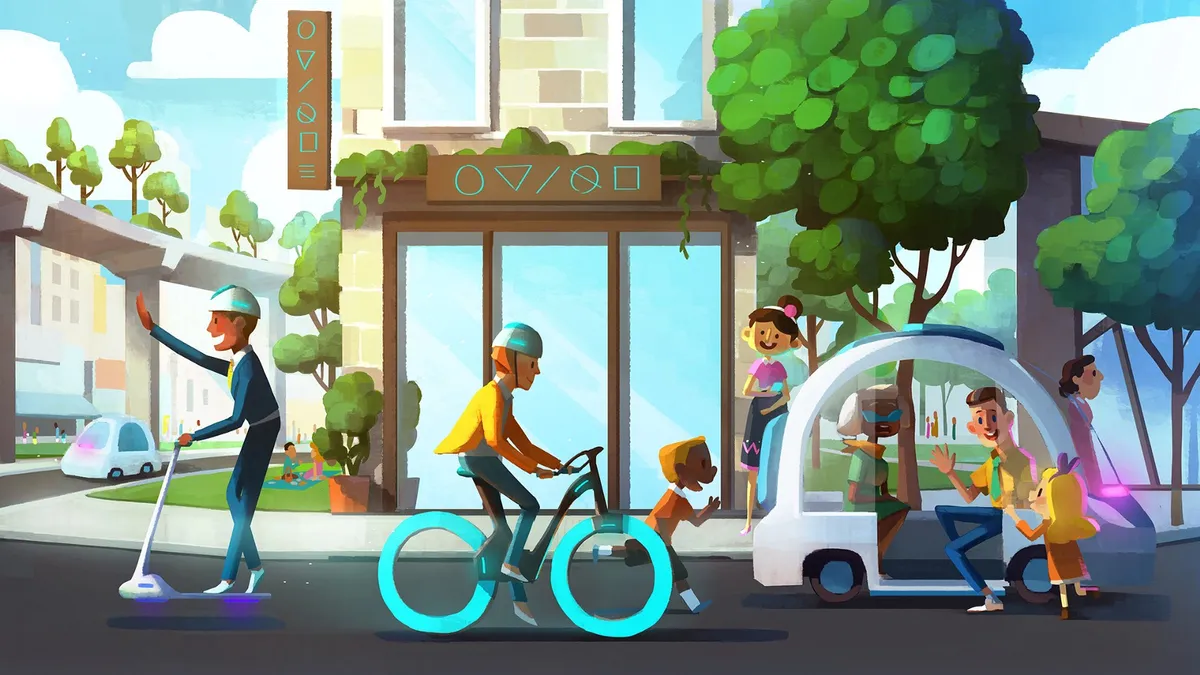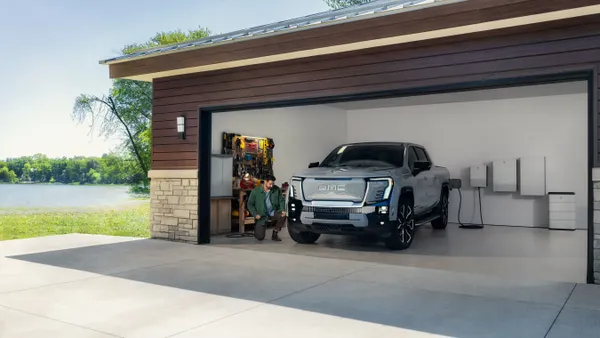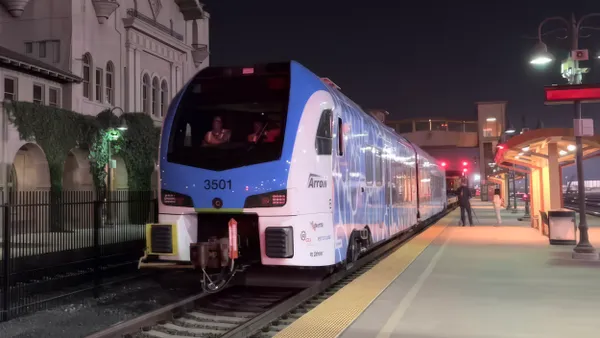Dive Brief:
- Ride-share company Lyft has laid out its plan to partner with cities on bike- and scooter-share programs, less than two weeks after it acquired bike-share operator Motivate. The plan involves investing $1 million in transportation options for underserved and low-income communities and advancing the company's goal of taking one million cars off the road by the end of next year.
- A Lyft spokesperson told Smart Cities Dive, "Lyft will partner with cities to introduce bicycle- and scooter-sharing to the Lyft platform. Using a bicycle or scooter with Lyft will be unique in its emphasis on bridging the first- and last-mile gap for transit and will focus on four key tenets: transportation equity, safer streets, transit integration, and environmental sustainability."
- The company is considering incentives for customers who use bikes and scooters to connect with transit, according to The Verge. In its operating permit for San Francisco, Lyft alluded to potential discounts of up to 100% for bike and scooter rides that originate or terminate at public transit stops.
Dive Insight:
Lyft's acquisition of Motivate was part of a transportation industry trend in which different mobility providers come together to pool their resources. Last week Uber followed suit in its partnership with Lime that will result in scooters appearing as a transportation option on the Uber app.
With the growing number of collaborations, companies are scrambling to grab partners they view as strong associates for the future. There's also pressure for the ride-share Goliaths to find ways to set themselves apart from the competition, which Lyft would do if it goes forward with the rider discounts for bike and scooter trips to and from transit stops.
Some cities including New York and San Francisco are at times finding themselves at odds with ride-share companies over topics like data sharing and accusations of increasing traffic congestion, so Lyft is smart to implement and highlight measures that will appeal to municipal leaders and communities. For example, the company is pushing toward a goal of 50% shared rides by 2020 and getting one million cars off the road by the end of 2019, both of which could reduce traffic congestion. "By promoting bikes, scooters and transit for the right trips, we will increase the pace of this trend and further the reduction of personal car ownership," Lyft Co-Founder John Zimmer said in a Medium post.
Lyft also stated its commitment to partnering with cities to advance their Vision Zero initiatives to reduce traffic deaths. The company promises "capital and technology solutions that expand protected bike lanes and reduce speeding."
One of the most significant ways Lyft's bike and scooter plan could interest municipal leaders is in the cooperation with and promotion of mass transit. The Medium post says customers soon will be able to "get real-time transit information, plan a multi-modal trip and use Lyft bikes and scooters to connect to a local transit stop." Considering public transit agencies across the country have reported dips in customers since ride-share companies emerged, cooperating with the existing transportation network instead of trying to compete with it likely will enhance acceptance of and boost favorable attitudes toward Lyft's services.











